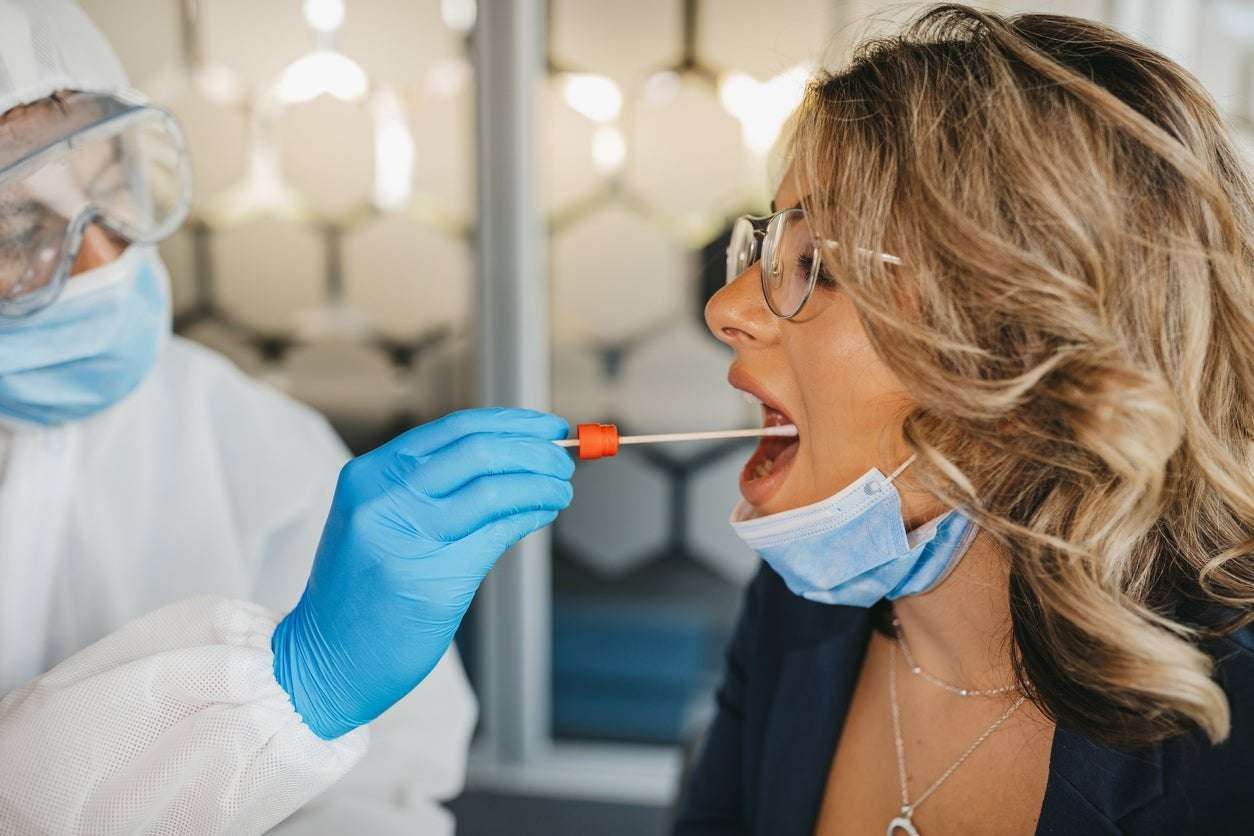A rapid coronavirus test that gives results in only 20 minutes missed more than half of positive cases during a pilot scheme in Greater Manchester, according to reports.
Scientists said the rapid test – a key part of Boris Johnson’s Operation Moonshot mass testing plan – identified only 46.7 per cent of infections during a trial in Manchester and Salford last month.
The team from Greater Manchester’s mass testing group (MTEG) raised concerns about the accuracy of the OptiGene Direct RT-LAMP test, in a letter published by The Guardian.
“The current available data from the Manchester pilot shows low sensitivity (46.7 per cent) of the Direct RT-LAMP platform,” the letter said.
The scientists said they had “significant concerns” and felt the data did not support a large-scale rollout of the tests to staff in clinical settings, such as hospitals and care homes.
However, the Department of Health and Social Care (DHSC) has pushed back against the claims, arguing that it was “incorrect” to suggest this particular kind of rapid test has a low sensitivity.
Professor Mark Wilcox, co-chair of the department’s Technical Validation Group, the rapid LAMP test used in Manchester had been validated in another recent pilot elsewhere that showed it had an overall sensitivity of nearly 80 per cent.
“The direct LAMP tests used in Manchester have been validated in other laboratories and in real-world testing for use in different settings,” said Mr Wilcox.
“It is incorrect to claim the tests have a low sensitivity, with a recent pilot showing overall technical sensitivity of nearly 80 per cent rising to over 96 per cent in individuals with a higher viral load, making it important for detecting individuals in the infectious stage.
“The challenge now is to understand the reasons for the difference in claimed sensitivity in one evaluation versus those in multiple others.”
The loop-mediated isothermal amplification (LAMP) swab tests can be analysed at ambient temperature next to testings centres, rather than the standard PCR swab tests which are taken to remote laboratories for processing.
The MTEG scientists, who reports to Greater Manchester’s health chiefs and the mayor Andy Burnham, revealed their fears in a letter to Martyn Pritchard, chair of the region’s testing strategy group.
The government’s mass testing plans being developed under Operation Moonshot could see up to 10 million people tested every day at a reported cost of £100bn.
Mr Johnson said that technical advances – including different kinds of rapid testing being piloted across Liverpool from Friday – could help allow for a return towards normal life.
The prime minister told a Downing Street press conference on Thursday: “These really are full of promise, I do think that testing does offer a real way forward for this country.”

jewboyfresh on November 6th, 2020 at 15:38 UTC »
In the hospital I’m at they say “don’t trust a negative but trust a positive”
lucaxx85 on November 6th, 2020 at 14:55 UTC »
This article does not have the information that are needed. Why is it claimed that it has 50% false negatives in this case but only 20% in validation testing? What's the reason, even just a suspected one, for this? It's known that PCR finds as positives even people that have/had COVID but are not contagious anymore. If these are the one missed that might not be an issue. If it's contagious ones, it's a whole another issue!
This is fundamental to understand whether this tests are useful or not!!
Justame13 on November 6th, 2020 at 13:59 UTC »
As someone getting tested weekly there has to be a massive margin of error due staff not doing it correctly.
The “brain swab” actually has to be left up there for a couple of seconds not just in and out. The nasal swab is often not touching the entirety of my nose, I actually prefer to do it myself.